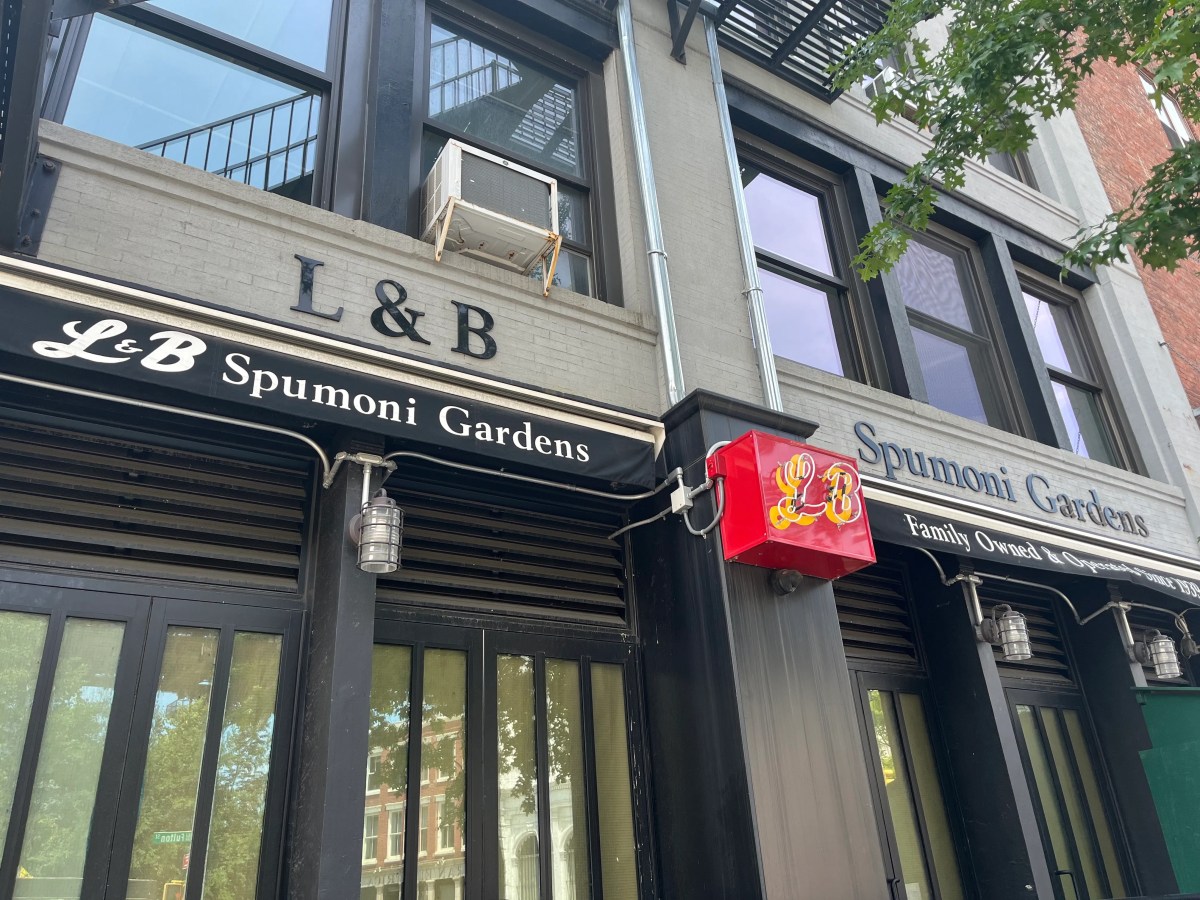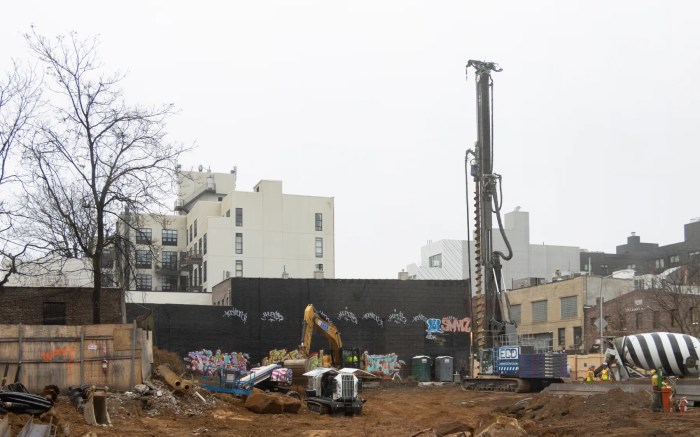By Roslyn Kramer
The renowned 2nd Ave. Deli has been closed since Jan. 2.
Villager photo by Bob Kreizel
For more than a week now the once hectic corner of Tenth St. and Second Ave. has been dark and bleak, its lively if not frenetically informative storefront barely visible behind the steel gate that bars the entrance 24/7. The 2nd Ave. Deli, its name written in florid pseudo-Hebrew lettering on the blue canopy, was shuttered by owner Jack Lebewohl on Mon. Jan. 2, more than a week ago in a dramatic yet puzzling response to a rent increase by the new owner of the building, Jonis Realty.
After an article in The New York Times it was general knowledge that the increase would be $9,000 a month on top of the deli’s present rent of $24,000.
“I understand capitalism,” said David Pincus, a neighborhood resident long enough to remember when the deli served meals family style.
The $9,000 has reportedly shrunk to $6,000 but still the deli’s doors remains shut, to general regret. A woman who had strolled a few blocks for a hot dog said she was “shocked and dismayed by the action of the landlord.” The family that owns a funeral home a few doors down from the deli was “traumatized,” according to a daughter, Amanda Schwartz, remembering the hot soup Lebewohl sent her recently. She felt “terrible — all these people out of work.”
Countless visitors, foreign and domestic, by the busloads or in small groups, make their way to this resilient, fabled corner of New York.
“It’s a real heartbreaker,” remarked Dan Joyce, who came from New Jersey for a deli sandwich one night last week. Lebewohl has spoken proudly of the deli as a “destination,” and that it certainly is, judging by the variety of people who still come now only to find it closed.
Yet there are puzzling inconsistencies. Lebewohl reportedly was a generous and understanding employer, giving workers time off with pay when they needed it. Yet the staff met different treatment after the restaurant had closed abruptly the morning of Jan. 2. According to Shohidul Islam, a five-year employee at the deli until he too was let go, the deli’s closing happened without warning. A sign in the kitchen stated the restaurant would be closed a month for renovation, but workers either didn’t see it or it didn’t register in the rush of work. Last Wednesday workers received any pay owed them but no additional money no matter how long they had worked at the deli — in some cases measured in decades — according to Islam. Some workers wept.
Lebewohl could not be reached for comment. Jobs may be restored in a few weeks or the deli might relocate elsewhere in the neighborhood, but Lebewohl has also threatened to close down. And he has a tight timetable. He wants a long lease to make the cost of modernizing his restaurant economically feasible, according to the Times. But these repairs must be done immediately, in January and February when business is slow.
The deli’s fate concerns other businesses as well.
“When you have 10 fingers and they cut off one — that’s how I feel,” said Melika Jami, manager of Cafe Centosette across 10th St. “It breaks my heart so much.” Immediately south of the cafe, the deli was also protection, adds Jami.
The deli’s history is written all over its front: anyplace the name Abe Lebewohl is mentioned — and that is everywhere — from the canopy, to the name over the glass doors retrieved from a Horn & Hardart Automat, and above all, the notice in the window reporting the murder of Abe Lebewohl, a Holocaust survivor and founder of the deli. The murder is still unsolved.
Abe was killed in March 1996. A $100,000 reward was offered by Jackie Mason for identification of the killers. After Abe’s death, Jack, a lawyer, took over the restaurant. But according to the place’s signage, it’s still Abe’s restaurant.
Abe was universally considered a peerless mensch who supported new stores in the neighborhood by patronizing them. He was a visible meet-and-greet presence in his own restaurant. Abe was “an unbelievably nice guy who gave sandwiches to the homeless and took care of employees,” said Rick Westerberg, a nearby store owner.
The deli started as a few stools and a counter in 1954. Yiddish theaters brought in customers, but by 1970 “this was a no-man’s land,” remembered Renee Warshaw. “This place kept the whole neighborhood afloat,” she said.
A small sign in the window may be a throwback to those hard times: “In accordance with Kosher regulations NO OUTSIDE FOOD PERMITTED,” freeloaders were warned. Stars of the Yiddish theater are engraved in the sidewalk in Grauman’s Chinese Theater style. In all, the store’s front alone is worth a visit, a tribute to a vital New York era, and a deeply felt familial affection for the man who created this institution.
As F.J. Rudy, who came from Cobble Hill last week only to find the restaurant closed, put it, “Love this place. The food, the energy — it feels so authentically New York.”







































